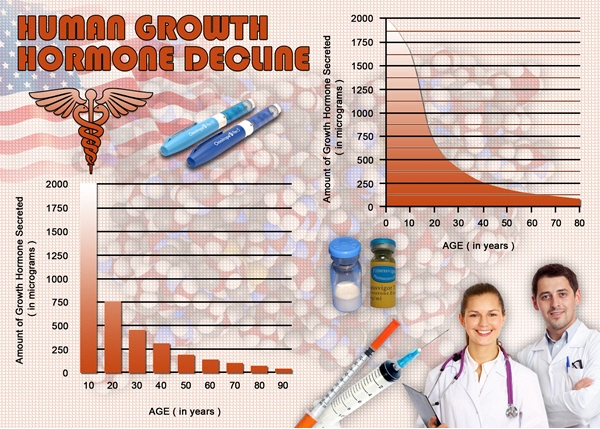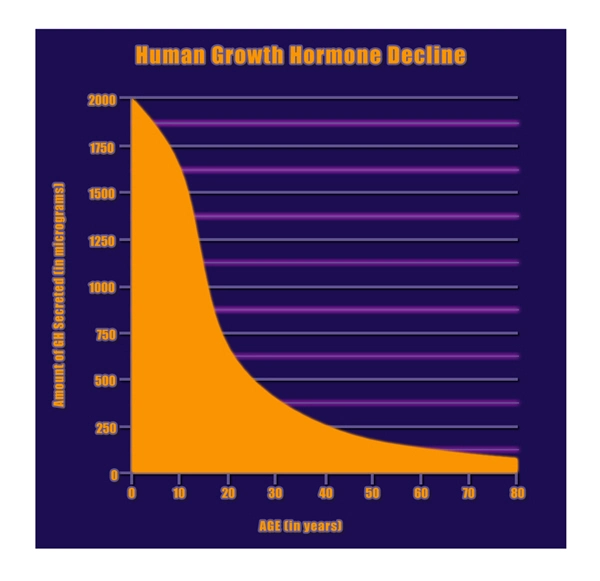Introduction to Drug-Induced Hair Loss
Hair loss, a concern for many American males, can be attributed to various factors, including genetics, stress, and medical conditions. However, an often overlooked cause is the use of certain medications. Drug-induced hair loss, medically known as telogen effluvium, occurs when drugs disrupt the normal hair growth cycle, leading to excessive shedding. This article delves into the mechanisms, common culprits, and management strategies for drug-induced hair loss, providing essential information for those affected.
Mechanisms of Drug-Induced Hair Loss
The hair growth cycle consists of three phases: anagen (growth), catagen (transitional), and telogen (resting). Medications can interfere with this cycle by prematurely pushing hairs into the telogen phase, resulting in increased hair fall. This phenomenon is typically reversible once the offending drug is discontinued, but the recovery process can take several months. Understanding these mechanisms is crucial for both patients and healthcare providers to manage expectations and plan treatment effectively.
Common Medications Linked to Hair Loss
Several classes of drugs have been associated with hair loss. Among the most common are:
- **Anticoagulants**: Medications like warfarin and heparin, used to prevent blood clots, can lead to hair thinning.
- **Antidepressants**: Selective serotonin reuptake inhibitors (SSRIs) such as fluoxetine and sertraline have been linked to hair loss in some patients.
- **Chemotherapy Agents**: Cancer treatments like doxorubicin and paclitaxel are notorious for causing significant hair loss due to their impact on rapidly dividing cells, including those in hair follicles.
- **Beta-Blockers**: Drugs like propranolol, used for heart conditions, can also contribute to hair thinning.
- **Hormonal Medications**: Anabolic steroids and oral contraceptives can disrupt hormonal balance, leading to hair loss.
It is important for American males to discuss potential side effects with their healthcare providers before starting any new medication.
Identifying Drug-Induced Hair Loss
Recognizing drug-induced hair loss can be challenging, as it often mimics other forms of hair loss. Key indicators include:
- **Sudden Onset**: Hair loss that begins abruptly, typically within a few months of starting a new medication.
- **Diffuse Thinning**: Hair loss that affects the entire scalp rather than specific areas.
- **Reversibility**: Hair regrowth that occurs after discontinuing the suspected medication.
If hair loss is suspected to be drug-induced, consulting a dermatologist or a healthcare provider is essential for a proper diagnosis and management plan.
Managing Drug-Induced Hair Loss
Managing drug-induced hair loss involves a multi-faceted approach:
- **Discontinuation of the Offending Drug**: When possible, stopping the medication causing hair loss is the first step. However, this must be done under medical supervision, as abruptly stopping certain medications can be harmful.
- **Alternative Medications**: If the drug is essential, exploring alternative medications with a lower risk of hair loss may be an option.
- **Nutritional Support**: Ensuring adequate intake of vitamins and minerals, such as biotin, zinc, and iron, can support hair health and potentially speed up recovery.
- **Topical Treatments**: Minoxidil, a topical solution, can be used to stimulate hair growth and is available over the counter.
- **Psychological Support**: Hair loss can impact self-esteem and mental health. Seeking support from counselors or support groups can be beneficial.
Conclusion
Drug-induced hair loss is a reversible condition that can significantly affect the quality of life for American males. By understanding the mechanisms, identifying common culprits, and employing effective management strategies, individuals can navigate this challenging side effect with confidence. Always consult with healthcare professionals to tailor a treatment plan that addresses both the underlying cause and the symptoms of hair loss.

- Unveiling the Silent Culprit: The Connection Between Scalp Infections and Male Hair Loss in America [Last Updated On: February 25th, 2025] [Originally Added On: February 25th, 2025]
- Exploring Medical Wigs: A Vital Solution for Hair Loss in American Males [Last Updated On: March 1st, 2025] [Originally Added On: March 1st, 2025]
- Examining the Complexities: Unraveling the Medical Implications of Hair Loss [Last Updated On: March 2nd, 2025] [Originally Added On: March 2nd, 2025]
- Understanding the Link Between Thyroid Disorders and Hair Loss: Causes, Diagnosis, and Management [Last Updated On: March 3rd, 2025] [Originally Added On: March 3rd, 2025]
- Advancements in Hair Loss Treatments and Impact on Men's Health [Last Updated On: March 4th, 2025] [Originally Added On: March 4th, 2025]
- Understanding Male Hair Loss: Causes, Diagnosis, and Treatment Options in the US [Last Updated On: March 5th, 2025] [Originally Added On: March 5th, 2025]
- Understanding and Managing Pediatric Male Hair Loss: Causes, Diagnosis, and Treatment [Last Updated On: March 6th, 2025] [Originally Added On: March 6th, 2025]
- Evaluating Over-the-Counter Hair Loss Treatments: Effectiveness and Considerations for Men [Last Updated On: March 7th, 2025] [Originally Added On: March 7th, 2025]
- Comprehensive Guide to Holistic Hair Loss Treatments for American Men's Well-Being [Last Updated On: March 8th, 2025] [Originally Added On: March 8th, 2025]
- Unlocking the Genetics of Hair Loss: Insights, Treatments, and Future Management Strategies [Last Updated On: March 9th, 2025] [Originally Added On: March 9th, 2025]
- Chemotherapy-Induced Hair Loss in American Males: Causes, Coping, and Regrowth Strategies [Last Updated On: March 12th, 2025] [Originally Added On: March 12th, 2025]
- Unraveling the Link Between Stress and Hair Loss in American Males: A Comprehensive Medical Insight [Last Updated On: March 12th, 2025] [Originally Added On: March 12th, 2025]
- Understanding Hormonal Influences on Male Hair Loss: A Comprehensive Guide [Last Updated On: March 13th, 2025] [Originally Added On: March 13th, 2025]
- Debunking Hair Loss Myths: Facts, Causes, and Effective Treatments for American Men [Last Updated On: March 15th, 2025] [Originally Added On: March 15th, 2025]
- Understanding Hair Loss: Types, Causes, and Effective Treatments for American Males [Last Updated On: March 17th, 2025] [Originally Added On: March 17th, 2025]
- Monogenic Hair Loss in American Males: Genetic Insights and Management Strategies [Last Updated On: March 17th, 2025] [Originally Added On: March 17th, 2025]
- Alopecia Universalis: Understanding, Treating, and Coping for American Males [Last Updated On: March 17th, 2025] [Originally Added On: March 17th, 2025]
- Allergies and Hair Loss in American Males: Understanding the Indirect Connection [Last Updated On: March 17th, 2025] [Originally Added On: March 17th, 2025]
- Hair Loss in American Men Linked to Increased Heart Disease Risk: Emerging Evidence [Last Updated On: March 19th, 2025] [Originally Added On: March 19th, 2025]
- Topical Treatments for Hair Loss: Efficacy, Options, and Professional Guidance [Last Updated On: March 19th, 2025] [Originally Added On: March 19th, 2025]
- FDA-Approved Medications: Combatting Hair Loss in American Men [Last Updated On: March 19th, 2025] [Originally Added On: March 19th, 2025]
- Diabetes and Hair Loss: Understanding Causes and Management Strategies for American Men [Last Updated On: March 19th, 2025] [Originally Added On: March 19th, 2025]
- Understanding Male Hair Loss: Genetic, Hormonal, and Lifestyle Factors [Last Updated On: March 20th, 2025] [Originally Added On: March 20th, 2025]
- Hair Loss in American Males: Causes, Surgical Options, and Management Strategies [Last Updated On: March 21st, 2025] [Originally Added On: March 21st, 2025]
- Telogen Effluvium: Causes, Symptoms, and Management in American Men [Last Updated On: March 21st, 2025] [Originally Added On: March 21st, 2025]
- Hair Loss in American Men: Psychological Impacts and Coping Strategies [Last Updated On: March 21st, 2025] [Originally Added On: March 21st, 2025]
- Managing Male Hair Loss During Partner's Pregnancy: Causes and Strategies [Last Updated On: March 22nd, 2025] [Originally Added On: March 22nd, 2025]
- Understanding Hairline Recession: Causes, Impacts, and Treatment Options for American Men [Last Updated On: March 22nd, 2025] [Originally Added On: March 22nd, 2025]
- Innovative Hair Loss Treatments for American Men: Stem Cells, Gene Therapy, and More [Last Updated On: March 22nd, 2025] [Originally Added On: March 22nd, 2025]
- Hair Loss Solutions: Inspiring Case Studies and Treatment Advances for American Men [Last Updated On: March 23rd, 2025] [Originally Added On: March 23rd, 2025]
- Autoimmune Disorders and Hair Loss: Impacts and Treatments for American Males [Last Updated On: March 23rd, 2025] [Originally Added On: March 23rd, 2025]
- Innovative Treatments and Technologies Transforming Hair Loss Solutions for American Males [Last Updated On: March 23rd, 2025] [Originally Added On: March 23rd, 2025]
- Hair Loss in Young Males: Causes, Impacts, and Treatment Options [Last Updated On: March 23rd, 2025] [Originally Added On: March 23rd, 2025]
- Hair Cloning: A Revolutionary Approach to Permanent Hair Loss Solutions [Last Updated On: March 23rd, 2025] [Originally Added On: March 23rd, 2025]
- Aromatherapy for Hair Loss: Exploring Benefits and Limitations for American Males [Last Updated On: March 23rd, 2025] [Originally Added On: March 23rd, 2025]
- Antidepressants and Hair Loss: Insights and Management Strategies for American Males [Last Updated On: March 24th, 2025] [Originally Added On: March 24th, 2025]
- Anemia and Hair Loss in American Men: Causes, Prevalence, and Management Strategies [Last Updated On: March 24th, 2025] [Originally Added On: March 24th, 2025]
- Anabolic Steroids and Hair Loss: Mechanisms, Impacts, and Mitigation Strategies in American Males [Last Updated On: March 24th, 2025] [Originally Added On: March 24th, 2025]
- PCOS in Men: Understanding Symptoms, Diagnosis, and Hair Loss Treatment Options [Last Updated On: March 24th, 2025] [Originally Added On: March 24th, 2025]
- Androgenetic Alopecia: Genetic Insights and Emerging Treatments for Hair Loss [Last Updated On: March 24th, 2025] [Originally Added On: March 24th, 2025]
- Strategies to Mitigate Chemotherapy-Induced Alopecia in American Males [Last Updated On: March 24th, 2025] [Originally Added On: March 24th, 2025]
- Medical Hair Loss in American Men: Causes, Impacts, and Holistic Management Strategies [Last Updated On: March 25th, 2025] [Originally Added On: March 25th, 2025]
- Postpartum Hair Loss in American Males: Causes, Symptoms, and Management Strategies [Last Updated On: March 25th, 2025] [Originally Added On: March 25th, 2025]
- Thyroid Disorders and Hair Loss in American Males: Causes, Diagnosis, and Treatment [Last Updated On: March 26th, 2025] [Originally Added On: March 26th, 2025]
- Understanding and Managing Male Hair Loss in Aging American Men [Last Updated On: March 26th, 2025] [Originally Added On: March 26th, 2025]
- Shock Loss After Hair Transplant: Understanding and Managing Temporary Hair Loss in American Males [Last Updated On: March 26th, 2025] [Originally Added On: March 26th, 2025]
- Male Pattern Baldness: Advances in Treatment and Future Prospects [Last Updated On: March 26th, 2025] [Originally Added On: March 26th, 2025]
- Diagnosing Hair Loss in American Men: Traditional and Advanced Techniques [Last Updated On: March 26th, 2025] [Originally Added On: March 26th, 2025]
- Trichotillomania in American Males: Understanding, Impact, and Treatment Options [Last Updated On: March 26th, 2025] [Originally Added On: March 26th, 2025]
- LLLT: A Promising Non-Invasive Solution for Hair Loss in American Males [Last Updated On: March 26th, 2025] [Originally Added On: March 26th, 2025]
- Anabolic Steroids and Hair Loss: Risks, Mechanisms, and Mitigation Strategies [Last Updated On: March 26th, 2025] [Originally Added On: March 26th, 2025]
- Hair Extensions and Permanent Hair Loss: Risks for American Males [Last Updated On: March 26th, 2025] [Originally Added On: March 26th, 2025]
- Hair Dyes and Hair Loss in American Males: Current Insights and Precautions [Last Updated On: March 26th, 2025] [Originally Added On: March 26th, 2025]
- Hair Follicle Miniaturization: Causes, Symptoms, and Treatments for American Males [Last Updated On: March 26th, 2025] [Originally Added On: March 26th, 2025]
- Immune System Disorders and Hair Loss in American Males: Causes and Treatments [Last Updated On: March 27th, 2025] [Originally Added On: March 27th, 2025]
- AI Revolutionizes Male Pattern Baldness Treatment: Personalized, Effective Solutions [Last Updated On: March 27th, 2025] [Originally Added On: March 27th, 2025]
- Vitamin Deficiencies and Hair Loss: Insights for American Men's Hair Health [Last Updated On: March 27th, 2025] [Originally Added On: March 27th, 2025]
- Post-COVID Hair Loss: Causes, Symptoms, and Management Strategies for American Males [Last Updated On: March 27th, 2025] [Originally Added On: March 27th, 2025]
- Hair Loss in American Males: Societal Views vs. Medical Facts and Holistic Management [Last Updated On: March 27th, 2025] [Originally Added On: March 27th, 2025]
- PRP Therapy: A Promising Non-Surgical Solution for Hair Loss in American Men [Last Updated On: March 27th, 2025] [Originally Added On: March 27th, 2025]
- Rogaine: Benefits, Risks, and Considerations for American Men's Hair Loss Treatment [Last Updated On: March 28th, 2025] [Originally Added On: March 28th, 2025]
- Hair Loss in American Males: Causes, Diagnosis, and Comprehensive Management Strategies [Last Updated On: March 28th, 2025] [Originally Added On: March 28th, 2025]
- Scalp Psoriasis and Hair Loss: Impacts and Management for American Males [Last Updated On: March 29th, 2025] [Originally Added On: March 29th, 2025]
- High Blood Pressure and Hair Loss: Insights for American Males [Last Updated On: March 30th, 2025] [Originally Added On: March 30th, 2025]
- Efficacy of Hair Loss Shampoos for American Men: Benefits and Limitations [Last Updated On: April 1st, 2025] [Originally Added On: April 1st, 2025]
- Menopause and Hair Loss in American Males: Understanding Andropause and Treatment Options [Last Updated On: April 3rd, 2025] [Originally Added On: April 3rd, 2025]
- Stem Cell Therapy: A Breakthrough in Treating Male Pattern Baldness [Last Updated On: April 3rd, 2025] [Originally Added On: April 3rd, 2025]
- Hair Loss in American Men: Psychological Impacts and Holistic Management Strategies [Last Updated On: April 5th, 2025] [Originally Added On: April 5th, 2025]
- Hair Loss After Weight Loss Surgery: Causes, Impacts, and Management for American Males [Last Updated On: April 6th, 2025] [Originally Added On: April 6th, 2025]
- Understanding Central Centrifugal Cicatricial Alopecia in American Males: Symptoms, Causes, and Management [Last Updated On: April 7th, 2025] [Originally Added On: April 7th, 2025]
- Hair Breakage vs. Loss: Causes, Differences, and Care for American Males [Last Updated On: April 7th, 2025] [Originally Added On: April 7th, 2025]
- Hair Loss and Mental Health: Navigating Psychological Impacts for American Men [Last Updated On: April 8th, 2025] [Originally Added On: April 8th, 2025]
- Minoxidil for American Men: Understanding, Using, and Maximizing Hair Regrowth [Last Updated On: April 8th, 2025] [Originally Added On: April 8th, 2025]
- Nutrition's Role in Combating Hair Loss: A Guide for American Men [Last Updated On: April 9th, 2025] [Originally Added On: April 9th, 2025]
- Protein Shakes and Hair Loss: A Comprehensive Guide for American Men [Last Updated On: April 9th, 2025] [Originally Added On: April 9th, 2025]
- GI Health and Hair Loss: Understanding the Link in American Males [Last Updated On: April 10th, 2025] [Originally Added On: April 10th, 2025]
- Lifestyle Changes to Combat Hair Loss in American Men: Diet, Stress, and Exercise [Last Updated On: April 11th, 2025] [Originally Added On: April 11th, 2025]
- Smoking and Hair Loss: Mechanisms, Evidence, and Preventive Strategies for American Males [Last Updated On: April 12th, 2025] [Originally Added On: April 12th, 2025]
- Weight Loss Diets and Hair Loss: Insights and Strategies for American Males [Last Updated On: April 13th, 2025] [Originally Added On: April 13th, 2025]
- Iron Supplements and Hair Loss Reversal in American Males: A Comprehensive Analysis [Last Updated On: April 13th, 2025] [Originally Added On: April 13th, 2025]



List of USA state clinics - click a flag below for blood testing clinics.
Word Count: 579



















































